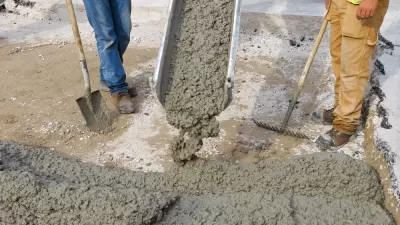Google announced last week it plans to expand high speed internet service in four fiber-ready cities, including Nashville, Atlanta, Charlotte, and Raleigh-Durham.
Running at gigabit speeds, Google claims its service is 100 times faster than typical broadband service, and available at a competitive price. Google began its fiber venture in 2010, and now serves three metropolitan areas: Provo, Austin, and Kansas City. The four southeastern announced this week are next in line, and the company is currently studying Phoenix, Portland, San Jose, Salt Lake City and San Antonio for future expansion.
A timeline is not available yet, though the company is asking local residents to verify addresses on its dedicated fiber web site, which will help with infrastructure planning.
Google’s hesitancy in announcing project completion date is understandable, as utility infrastructure can become technically and politically complex, especially when navigating multiple jurisdictions. Google notes on its web site that construction work will involve 'stringing and laying,' which refers to both an aerial and underground configuration. Many U.S. cities ban new overhead wiring for aesthetic and reliability reasons, and yet utilities can often work around this limitation if activities are classified as maintenance-related.
Whether Google can take advantage of similar loopholes and join existing telecommunications utilities on increasing crowded utility poles remains to be seen. Burying cable underground is much more costly than overhead, and often prohibitively expense over long distances. And yet the cost-effective overhead option could also be risky, as splicing fiber cables to accommodate redevelopment can degrade transmission speed over time.
Splicing fiber is also more difficult and expensive than traditional copper cable as is common in electrical wiring. In many cases property owners face high costs if relocation of aerial utilities is required for certain development activity, which is a common strategy for improving road corridors.
FULL STORY: Google Expanding High-Speed Internet to Four Southeastern Cities

Study: Maui’s Plan to Convert Vacation Rentals to Long-Term Housing Could Cause Nearly $1 Billion Economic Loss
The plan would reduce visitor accommodation by 25,% resulting in 1,900 jobs lost.

North Texas Transit Leaders Tout Benefits of TOD for Growing Region
At a summit focused on transit-oriented development, policymakers discussed how North Texas’ expanded light rail system can serve as a tool for economic growth.

Using Old Oil and Gas Wells for Green Energy Storage
Penn State researchers have found that repurposing abandoned oil and gas wells for geothermal-assisted compressed-air energy storage can boost efficiency, reduce environmental risks, and support clean energy and job transitions.

Private Donations Propel Early Restoration of Palisades Playground
Los Angeles has secured over $1.3 million in private funding to restore the Pacific Palisades playground months ahead of schedule, creating a modern, accessible space that supports community healing after recent wildfires.

From Blight to Benefit: Early Results From California’s Equitable Cleanup Program
The Equitable Community Revitalization Grant (ECRG) program is reshaping brownfield redevelopment by prioritizing projects in low-income and environmental justice communities, emphasizing equity, transparency, and community benefits.

Planting Relief: Tackling Las Vegas Heat One Tree at a Time
Nevada Plants, a Las Vegas-based nonprofit, is combating the city’s extreme urban heat by giving away trees to residents in underserved neighborhoods, promoting shade, sustainability, and community health.
Urban Design for Planners 1: Software Tools
This six-course series explores essential urban design concepts using open source software and equips planners with the tools they need to participate fully in the urban design process.
Planning for Universal Design
Learn the tools for implementing Universal Design in planning regulations.
Ascent Environmental
Borough of Carlisle
Institute for Housing and Urban Development Studies (IHS)
City of Grandview
Harvard GSD Executive Education
Toledo-Lucas County Plan Commissions
Salt Lake City
NYU Wagner Graduate School of Public Service





























